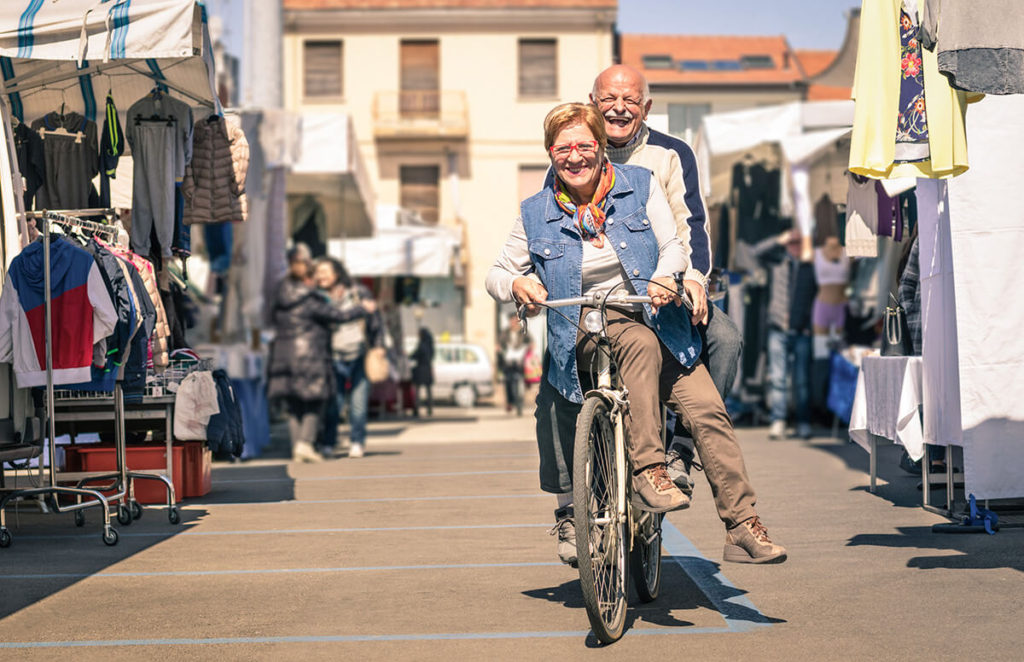
photo by Adobe Stock
By Chuck Bolotin | Retirement Expert
I’m seeing a yearning of many people around my age to return to a simpler time, like when we were growing up. My evidence: the hundreds of interviews I’ve done for Best Places in the World to Retire and the studies we did in which we asked expats about their lives abroad.
Interestingly, many Americans and Canadians have not only moved abroad partly to search for a life reminiscent of an earlier time, but quite a few tell me that they’ve found it — and in some very unlikely places, including Mexico, Panama, Belize and Nicaragua.
Here’s what they told us:
Less Government Involvement
It may sound odd that the government in countries considered to be socialist would have lessgovernment involvement than in the U.S., but in the day-to-day lives of the locals, it’s true. Whether these governments would want to be more involved or not, they simply don’t have the resources to do so. That means locals find themselves doing some things that the federal and state governments often do in the United States.
“Having the government less involved creates an entirely different dynamic than north of the border,” explains Dr. Santiago Hernandez, formerly from the Chicago area and now practicing in Ajijic, Mexico, on Lake Chapala. “If there’s a problem, most locals don’t expect the government to fix it, so they either live with it or fix it themselves. This creates more community cohesion and a feeling of involvement and belonging.”
While this is true of locals, it is even truer among expats, especially the “fix it themselves” part.
In every location we cover at Best Places in the World to Retire, expats have formed charitable organizations completely independent of any government, for everything from spaying and neutering animals to beach cleanup to providing a library for local school children, as Daryl Bushnell helped to do in Granada, Nicaragua when he helped create and fund Puedo Leer (“I can read”).
This is one reason why many locals are so grateful and happy to have expats live among them; it is natural for their new neighbors to help. And they are doing so in a place that not only needs their help, but where they can see the results firsthand, very intimately and frequently immediately. Expats have told me they find this very rewarding.
The Family Is Supreme
Many expats have also told me that, as life in America becomes increasingly busy and disconnected, there has been a reduction in the importance of the family. But where they now live, they say, is more “like it used to be.”
Expats see entire extended, multi-generational families together constantly, whether having a barbeque at the park or working, perhaps at a small, family- run business, with everyone from grandma to the grandkids working side by side. Many times, the young children are the ones handling the money (which they’re surprisingly good at!) in between doing their homework.
The children, I’ve been told, are more needed and seem to have more of a sense of belonging and self-worth than many north of the border.
Elders Are Respected
The expats also talk about a respect for the elders that they rarely see anymore in America or Canada.
James David Audlin notes that every morning, when he gets on the bus in Volcan, Panama, everyone greets him with “Buenos dias.” After he boards and someone new comes on, Audlin joins the welcoming committee. He likes that.
When my wife and I are eating at a restaurant in Mexico, it is not at all unusual for other diners to engage us, as total strangers, and say a simple, “Buen provecho” (“Enjoy your meal”). It’s bad manners not to do that there.
When I visited the Philippines a few years ago, I witnessed and took part in a beautiful tradition. Whenever one of the children would enter a multi-generational gathering, they wouldn’t just start playing with their friends. Rather, the child would first go to each adult, take the adult’s hand, and place it on the boy’s or girl’s forehead and ask for a blessing, which the adult would provide. Only after the child did this with each adult would the youngster then go play with the other kids.
I found it very nice to be in this environment. Remember when we were children and entered a room, we would acknowledge adults first, in our own cultural way?
Were “the olden days” better in every way for every person, including minorities? Of course not. Are there other ways that life north of the border is better than south of the border? Of course there are. Do local family members sometimes work together because they need the money? Yes, many probably do. Are the larger cities south of the border becoming more like ones in the U.S. and Canada? In my opinion, regrettably, yes.
However, if you long for the sense of community, respect and family you recall growing up, you’ll find lots to appreciate and enjoy about life today in the popular expat destinations of Mexico, Panama, Belize and Nicaragua.
![]() This article originally appeared on Next Avenue
This article originally appeared on Next Avenue
© Twin Cities Public Television - 2017. All rights reserved.
Read Next



